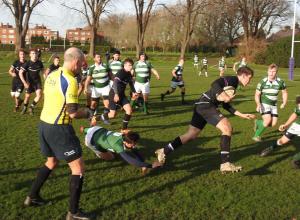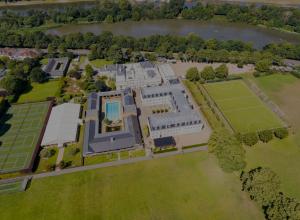.jpeg)
Living in a democracy gives all voters the chance to help decide the direction of the country. But how many of us base our decisions on the personalities of the leaders, family voting traditions or views acquired from social media? Studying politics at A Level will enable students to really understand how government works and the part ideologies play in driving how things work. Students will be taught to understand how and why leaders and governments come to decisions, to construct opinions and to really grasp the way that countries work.
Along the way, students learn skills like debating, information analysis structured writing, data analysis and research, all of them useful assets in the job market. Potential careers include law, journalism, accountancy, writing, publishing and lobbying. We visit both Parliament and the Supreme Court and aim to produce politically-aware and active students whose study and love of politics will endure and continue throughout their lives.
Typically, our students go on to study Politics, International Relations, Philosophy, History, Geography, Sociology, Economics and Business at university.
A Level
- Students study the AQA A Level Politics course. For full details please see the AQA Website or the Harrodian Sixth Form Prospectus.
Course introduction
Students complete three papers, all of equal weighting. The new course is linear, so students sit all exams in the summer of their Upper Sixth year.
Paper 1
The government of the UK
- The nature and sources of the British Constitution
- The structure and role of parliament
- The Prime Minister and cabinet
- The judiciary
- Devolution
The politics of the UK
- Democracy and Participation
- Elections and referendums
- Political parties
- Pressure groups
- The European Union
Paper 2
Government and Politics of the USA
- The constitutional framework of US government
- The legislative branch of government: Congress
- The executive branch of government: President
- The judicial branch of government
- The electoral process and direct democracy
- Political parties
- Pressure groups
- Civil rights
Comparative politics
Students will also study the following three theoretical approaches enabling them to undertake a comparative study of the government and politics of the UK and the USA, analysing and explaining similarities and differences between them.
- Structural
- Rational
- Cultural.
Paper 3 - Political Ideology
- Liberalism
- Socialism
- Conservatism
- Feminism
Course requirements
We require students to have a level 7 or above in GCSE English and prefer them to have studied GCSE History, achieving a level 7 or above. Previous study of politics is not required but an interest in current affairs is essential. As well as extensive reading and research of texts and articles we set, considerable background reading is also required. Literacy skills such as essay writing, source analysis and the ability to write detailed, structured answers are all important.
For more specific year-by-year information, please refer to our Curriculum Handbooks/Information Booklets.
Extracurricular
In the past we have offered opportunities including:
- Trip to Parliament including a tour of the House of Commons and House of Lords.
- Meeting with a current member of Parliament.
- Tour to the Supreme Court, and if possible the opportunity to see a trial.
- We hope in future to run a trip to Washington.
- Associated clubs include: Harrodian Model United Nations, Debating Society, Politics Society.
Staff
Head of Politics: Charlotte Arnold
Other teachers of Politics: please select the relevant department on the dropdown menu to view our full staff list by clicking here.







